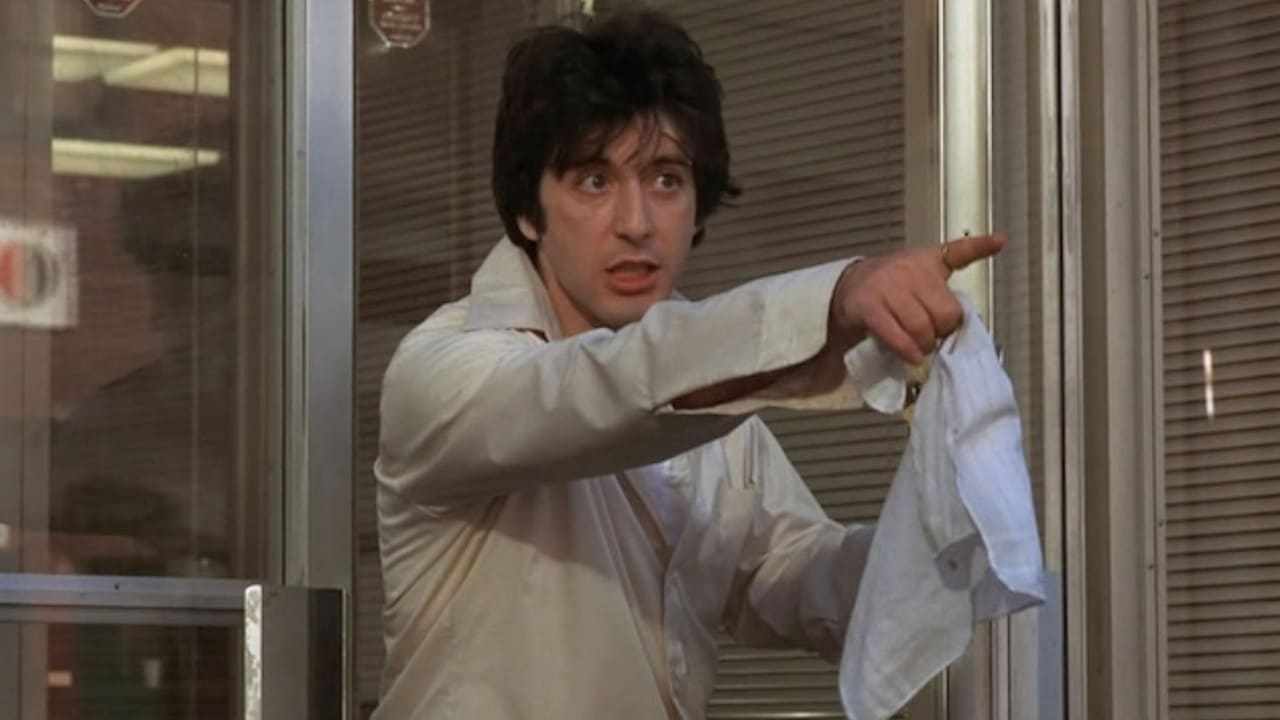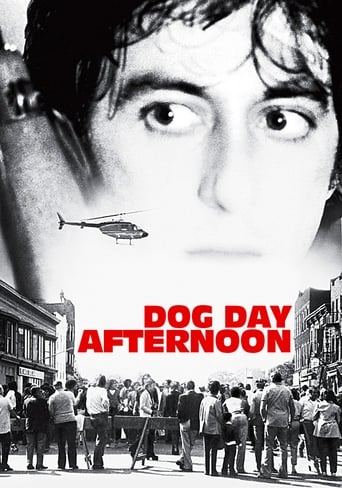

Dreadfully Boring
... View MoreGreat example of an old-fashioned, pure-at-heart escapist event movie that doesn't pretend to be anything that it's not and has boat loads of fun being its own ludicrous self.
... View MoreMostly, the movie is committed to the value of a good time.
... View MoreThe storyline feels a little thin and moth-eaten in parts but this sequel is plenty of fun.
... View MoreI watched this for the first time recently and I was astonished that it actually happened.It reminds me of "Falling Down" in a way as it is about a caring and loving person who breaks the law in an act of desperation to salvage a relationship.
... View More(Flash Review)This film captures Pacino in his fiery youth and range as an actor. He portrays a kind-hearted bank robber needing money to give to his male partner for an operation. This film is a comedy of errors and poor decisions. Nothing goes right even though Pacino has put some planning into this. Awash in the middle of the grimy and drab 1970's styles as well as the hot day in the city, this adds to the awkwardness of the robbery plan. Pacino's acting is emotional and rich and the story unfolds with some solid surprises. A must for Pacino fans.
... View MorePerhaps I'm missing something here but I grew rather bored with "Dog Day Afternoon." I found the film to be overblown nonsense and irritating. Al Pacino made far better films during this decade, like the first two "Godfather" instalments, "Scarecrow" and "Serpico." His character here comes across as being buffoonish and totally ineffectual. I found the setting to be wrong as well. The only redeeming quality about "Dog Day Afternoon," is the cast. The fine character actor Charles Durning is very good as the police officer. There are plenty of 1970s American films that overshadow this one.
... View MoreI've seen it said frequently about this film that it is a commentary on the nature of media and sensationalism, and how those things can warp the perception of certain events and people. This is a fair analysis, but what I think is perhaps more significant to me, though perhaps not as clever, is that this film is a careful study of how different people react to a crisis. Of course, these things are not mutually exclusive. The media certainly acts as a major force of change both in the nature of the story and in the characters. I think though, that the idea that this film is just about how the media affects people is insufficient. How then is the viewer meant to understand the scenes which altogether lack any media presence? In the quieter moments of this film, when the cameras have gone away and the crowd is silent, the heart of this film reveals itself. It is about people reacting to crisis. Not just the crisis of a robbery gone wrong, but personal crisis. What drives characters in the film is not how they think the cameras will perceive them (not saying that part is not also essential in appreciating this film). The protagonist, masterfully performed by Al Pacino, is not motivated by it. He's motivated by the tumultuous nature of his life which has led him to this point, and the desperation it has instilled in him. The police too, are not driven by cameras and crowds, they simply measure their actions differently. Media changes the dynamics, but it doesn't change reality. The reality is that people are brought together by a tense situation and are defined by how they compose themselves when the pressure's on. The best example of this theme in action within the characters is in the transition of police leadership of the stand-off from Moretti to Sheldon. I found watching this film that when Sheldon confronts Sonny for the first time, I could tell it was the beginning of the end. It isn't just that Sheldon represents a more formidable branch of law enforcement, but that he conducts himself in a more powerful way. He's cool and collected. Up to this point in the film you sort of get the sense that Sonny and Morreti are approaching the situation with pretty similar attitudes. They're both struggling to maintain their composure and they're seemingly blindsided by the fiasco that is the hostage situation. Sheldon is not blindsided. They're isn't a trace of doubt or fear in him. He has it all under control, which means that Sonny has lost all power. Watching his interactions with Sheldon I just knew that it was already over. How could a mere victim of circumstance best what is obviously a master of fate and will? The direction of this film is also demonstrative of this theme. You might notice, especially if you've seen a Lumet film before, that the use of music in this film is very limited. This strikes me as being very deliberate both stylistically and dramatically. After all, wouldn't it make more sense to play up the sensational nature of the story by adding a melodramatic score to punctuate every little interaction? That would be very meta. What this selective choice of music suggests, to me at least, is that reality is distinct from the media circus. It surrounds the characters, it influences their behavior to a certain extent, but ultimately it isn't the reality they occupy. They are still trapped in their circumstances, and no amount of cheering, jeering, or filming can change that. All that's left for them is to decide how to handle their crises. That also explains the nature of the cinematography, which also seems a bit restrictive at times. There's little movement and the often the camera is sort of just set at eye level. Nothing too crazy. The effect of this is that you find yourself, as the viewer, just as trapped as the characters you're observing. You don't get to have a dozen montages and swoop over the roof as the police plot their infiltration because that isn't something any of the characters can do. This film respects the barrier between crisis and coverage. It endeavors to thrust its characters into a disaster and ask you to consider how they're reacting. The commentary it makes on the media is valid, and should be considered carefully, but in doing so don't forget what's happening when the cameras are away.
... View More